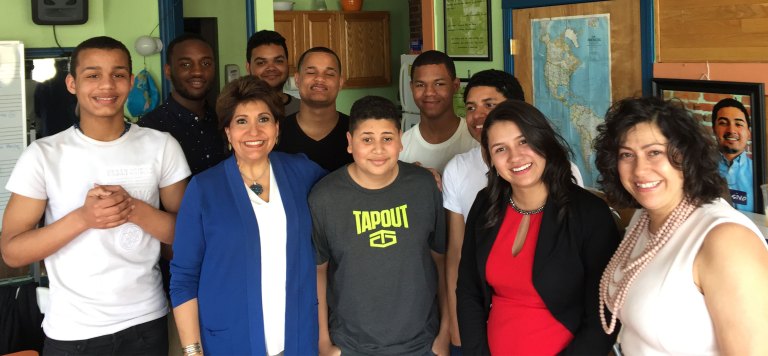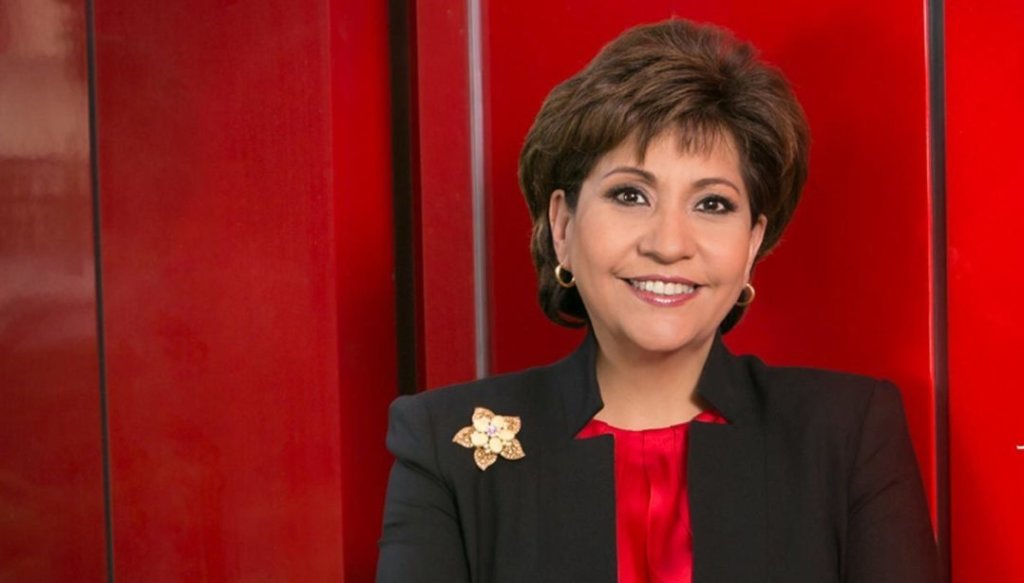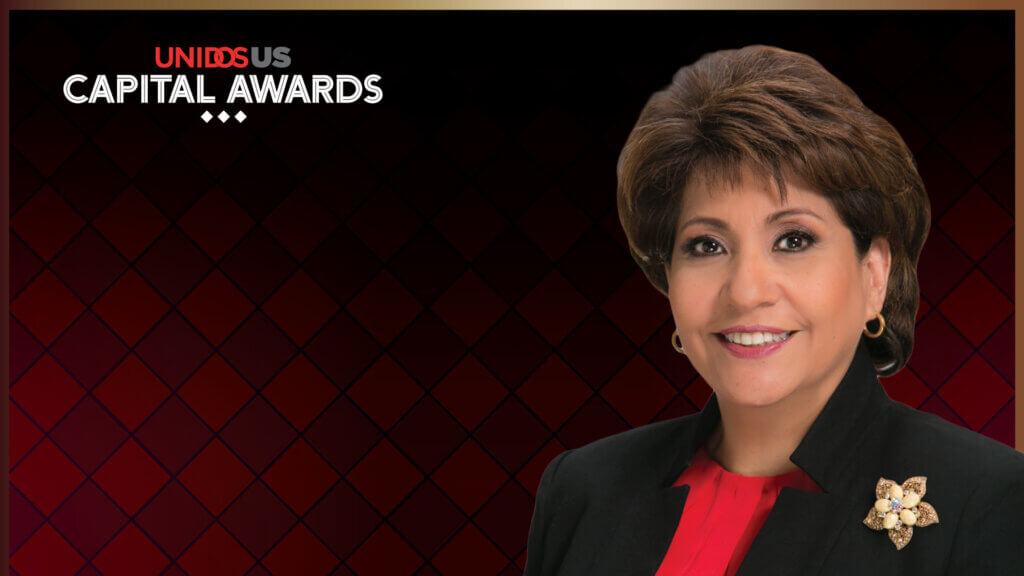My Meeting with Youth at Sociedad Latina
I believe that it is impossible to advocate for people without also listening to them.
By listening to young people, we learn what our future leaders are worried about, what they’re excited about, and it gives us the opportunity to make sure that as an organization, we’re doing all we can to help young people succeed.

I do a lot of speaking, but part of being a good leader is taking that time to listen. That’s why earlier this month I spoke with students from Boston-area high schools at Sociedad Latina, a leading UnidosUS Affiliate that tackles cycles of poverty and inequity, and promotes educational opportunities.
Sociedad Latina has become a community anchor and place of refuge for Latinos. During the roundtable, students spoke freely about their concerns about living in such tumultuous times.

GENTRIFICATION AND VIOLENCE
A recurring theme in the discussion was that of affordable housing, and the displacement of Latinos as the result of gentrification.
“I feel like around this area there are new buildings. People with money are driving people out. It’s happening in my building, college kids coming in,” one student told me.
There’s a palpable sense of gentrification in Mission Hill. As the roundtable took place, we could see through the window how the neighborhood is changing—how what may be perceived as community development is driving the local community away.
Alexandra Dávila, Executive Director at Sociedad Latina, is a former UnidosUS Northeast Affiliate Council representative, as well as a National Institute for Latino School Leaders (NILSL) fellow. NILSL is a UnidosUS fellowship program that seeks to shape education policy by infusing the experiences and perspectives of leaders working with and on behalf of Latino students.
On the discussion of gentrification, Davila explained that, “Public housing is a crisis. Our families have nowhere to go.”

The issue of gun violence also came up as a something almost normal for the neighborhoods they come from. And the violence is constant.
One student mentioned that there had been frequent shootings both in the neighborhood and around the perimeter of their school.
“In this neighborhood, we have four high schools. We don’t have a walking officer, and trust me, we’ve asked,” said Dávila.
“Some people think that Mission Hill is getting better and better,” a student named Everett said. “But gun violence is such a big issue. There was a shooting at the intersection at Parker, right here, in the daylight.”
IMMIGRATION
It comes as no surprise that the student demographics of this roundtable reflected the Mission Hill area. Their families hail primarily from the Dominican Republic, Haiti, and Puerto Rico. Some students are first-generation, some second, and some third-generation Americans.
Diana is an immigrant from Colombia who came to the United States when she was 12. She brought up the issues of racism and immigration as contributing factors to her fears related to the future.

Her father works at a butcher shop, and her mother is a cook at a restaurant. They speak Spanish at home, and they are in a precarious immigration status, which impacts the way Diana sees her future.
When I asked her about her dreams for the future, Diana mentioned that she wants to run her own business. She is bright, has good grades, works, but doesn’t know if she will be able to pursue a degree in finance or business.
When I heard Diana’s story, I then turned to the table and asked who was 18 or about to turn 18. Two young men raised their hands, and one of them said that he had not given any thought to voting. I reminded them that the only way to change policies is by voting, by electing people who represent their beliefs and work on their behalf.
“We are a very young community,” I told the students. “We have a million Hispanics turning 18 every year. A lot of people think that as a community, that if we indeed voted, we could perhaps change the policies that are challenging our community.”
IDENTITY AND DISCRIMINATION
When the conversation turned to identity and discrimination, the students paused to reflect on their experiences. They agreed that their parents seemed to be open about gender identity, and that their schools are somewhat welcoming spaces for LGBT youth. One student mentioned the gay/straight alliance at his school and the proactive measures that are taken by the city of Boston to combat bullying and discrimination.
While students discussed the stereotypes the Latino community faces, they were very focused on the policy changes that would help some of the challenges that exist in their community. One student suggested growing mentorship programs and community development, another suggested increasing the number of bilingual teachers, and improving college affordability.
Some of the students are already committed advocates. Joshua is part of the civic engagement program at Sociedad Latina and works to improve opportunities for student-centered learning.
Bebbo is part of the Young Men Advisory and Community Organizer programs, focusing on the issues that men of color face in their daily lives.
THE POWER OF OUR AFFILIATES
The consensus from the group reinforced the roles of community-based organizations like Sociedad Latina that tackle the challenges faced in communities across the country. Through Sociedad Latina’s programs, it has become a place where youth are able to be their authentic selves.

“I’ve been able to work for what I want to do,” a student said. “I have a lot of opportunities because of Sociedad Latina. In a way, Sociedad shielded me from discrimination. Sociedad gave me the door to what America looks like.”
I want to thank Sociedad Latina for hosting the roundtable and bringing us all together last week. I hope these young people continue to help their friends, families, and community make their voices heard. And I want them to remember that even though times are challenging right now, no one—no matter how high an office they hold—can deny us our dreams. And when we vote, we can determine our destiny.
By Janet Murguía, UnidosUS President and CEO





